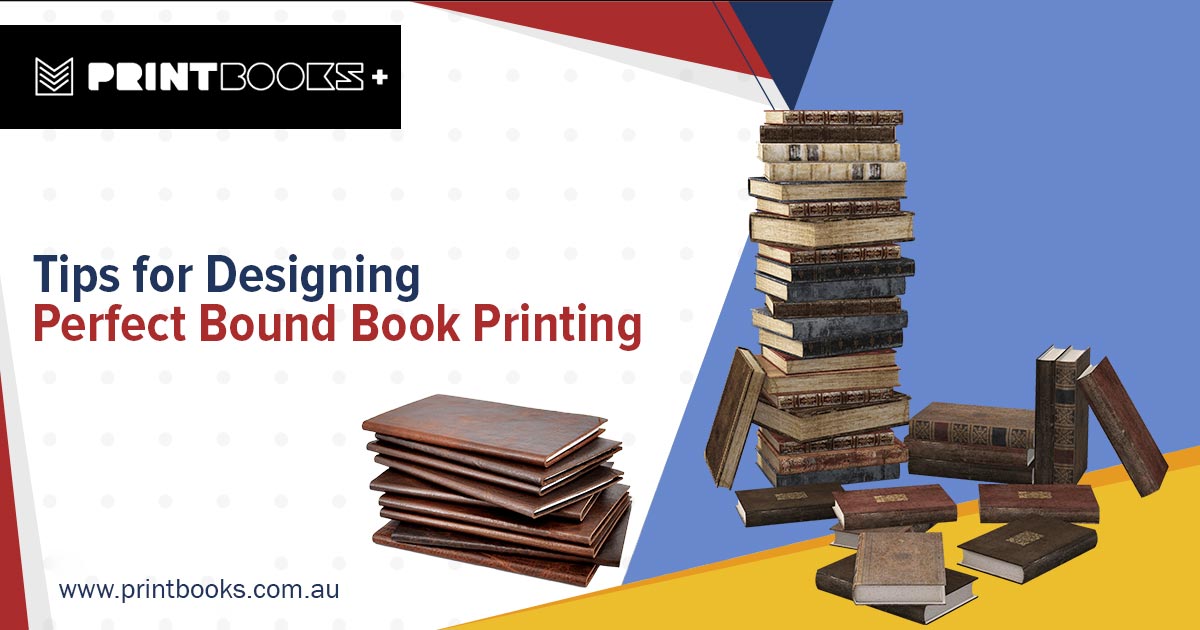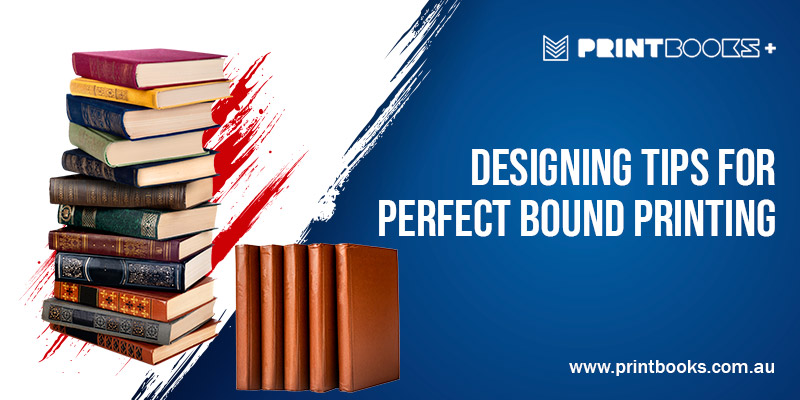Tips for Designing Perfect Bound Book Printing

With perfectly bound booklets, you may present yourself with the utmost professionalism. Portfolios, periodicals, graphic novels, catalogs, manuals, annual reports, and paperback books are all elegantly bound using this style.
A perfect bound book is great for booklets as the glue is used for making rather than using coils or staples. The name, the title of your booklet, or artwork can be carried uninterruptedly from the front cover to the back with this seamless cover. To know more about designing perfect bound books for printing, here are some tips:
Designing Tips for perfect bound printing
Margin
Perfect-bound books are glued at the spine, so unlike saddle stitch booklets that open pages to lay flat, a perfect-bound book cannot lay completely open. Each paging area will hide inside the spine during the binding process known as the gutter. The gutter may take up to 2-3 cm depending on the number of pages on the booklet.
The better strategy is to leave at least a quarter margin space inside each page. To keep the safety margins on the correct side, be careful to keep a note of which page will be on the right or left side of the booklet. The text and images should not be lost in the gutter, so you need to ensure that they remain visible inside the safety margin.
Page order
Perhaps many believe that the pages are arranged in the correct order. But the problems of disarrangements of pages can become an issue if not checked properly when using perfect bound book printing.
For perfect binding book printing, you can have two files, one will be for the cover, and another will be for the content. Page 1 of the content page will be on the right side of the book, and it is also known as the facing page.

Page counting
It is strongly advised to give correct numbering to the pages. There are several ways to accomplish this, but wherever the numbers are placed, be consistent.
Even pages (2, 4, and 6) will have numbering on the left, while odd pages (1, 3, and 5) will have numbering on the right. For inserting numbers at the page edge, keep in mind that they must be on the outside border.
One of the most crucial things to be aware of is that you can include blank pages in content if it needs to appear in the document. This is very important when deciding where new chapters will start.
You will need to insert a blank page to move the first page of chapter 2 to the following facing page. For example, if the last page of chapter 1 finishes on a facing page and you don’t want chapter 2 to start on the back of the page, this might be useful.
Two-page spreads
If you need one image to be featured on two pages, always keep in mind that when the pages meet together, the alignment of the photo may not perfectly match up. The gutter area will at least break the image quarter from each side when the two images are covered.
As sheets are glued together for a perfect dimension, a perfect bound book is not printed in sheets. For instance, the pages that result from binding an 8.5″ x 11″ book would have the same size as well. So, except for the front and back covers, it would therefore be unable to employ 2-page spreads.
It can have a drastic impact on the photo’s appearance, even though it may look like a small problem. When there is no bleed room in the middle of the spreads, it might be very challenging to convert the spread design to single pages. So, while designing, this has to be taken into consideration.
Spine width
The ability to design a spine is one of the unique features of a perfect bound book. You can add text, add solid colour or have a continuous image covering the front cover across to the back cover. For perfect binding, setting up the cover correctly is very important because the thickness of the book should match the width of the spine.
Designing spines
For a flawless binding, the spine must match exactly the book’s breadth. The spread of the front and back covers is attached in the middle by the spine of the book. This is usually not too difficult for books with a front, back, and spine that is in one single colour. Without worrying about the design of book printing, the printer can trim the excess spread width.
It is advised that books with many pages only have the spine in a different colour from the front and rear covers. If not, this could result in a spine that is not perfectly centered and moves part of it to the front or back cover.
Benefits of designing perfect bound book printing
The perfect bound book printing technique is very adaptable. A wide range of publications can make use of it. Many advantages come with perfect bound binding. First and foremost, and this is crucial for many, is the cost-effectiveness of its printing.
The use of perfect bound book printing on relatively modest print runs enables customers to produce high-quality printed materials on a budget. Perfect-bound books are also more affordable than hardcover binding techniques.
A flat spine that can later be printed on is another advantage of perfect-bound bookbinding. This makes it possible for details like the book’s title and author to be printed on the spine.
Final thoughts
If you need attractive, simple-to-read books and magazines, then PRINT BOOKS is the right choice. Our fastest and most economical bookbinding technique of saddle stitch binding will make your books more attractive.
In a variety of stock and finish options, we provide high-quality service at affordable cost with faster turnaround times. Our saddle stitching will be a great option for your business profiles, multi-page adverts, and magazines.
